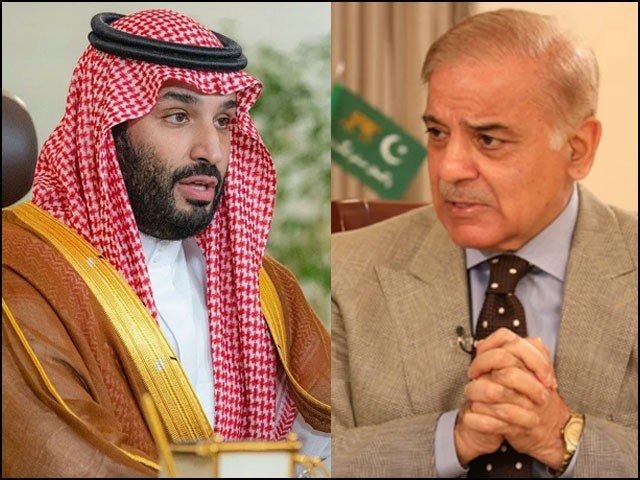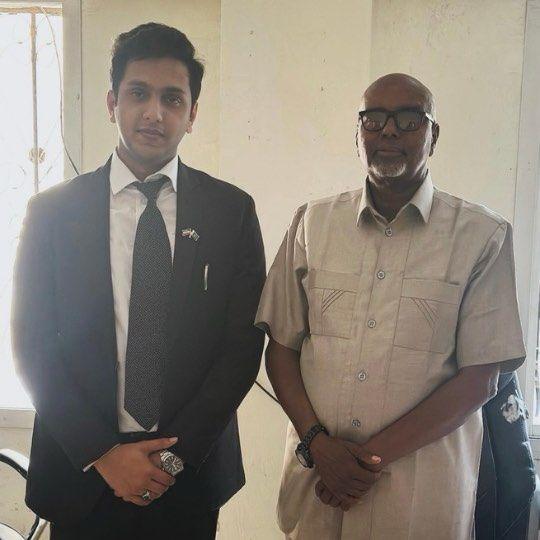Islamabad/Riyadh: Saudi Arabia and nuclear-armed Pakistan have officially signed a mutual defense pact, signaling a dramatic escalation in their longstanding security partnership. The agreement comes on the heels of a high-level emergency meeting in Doha last week, convened by Islamic countries following growing tensions in the region, particularly after Israel’s recent aggression against certain Gulf states. This move marks a strategic pivot for Gulf nations who, until recently, relied heavily on defense agreements with the United States.
The pact, according to a statement from the Pakistani Prime Minister’s office, underscores a joint commitment to enhancing security, with an emphasis on strengthening their shared deterrence capabilities against any form of aggression.
“Any aggression against either country will be treated as aggression against both nations,”
the statement read, signaling a firm, unified stance between the two countries.
This agreement takes on added significance given Pakistan’s status as a nuclear power. In a statement made at the Doha meeting, Pakistan’s Prime Minister Shehbaz Sharif emphasized the unique deterrence power of Pakistan’s nuclear arsenal, stating,
“Pakistan is the only nuclear-armed Muslim country, and our nuclear capabilities are a shield not only for us but for all Muslims.”
Sharif’s comments were part of broader discussions about regional security and the shifting power dynamics in the Middle East, especially after Israel’s attack on Qatar—despite the Gulf state’s long-standing alliance with the U.S.
This development also signals a broader realignment in the region’s defense strategies. While countries like Qatar and other Gulf Cooperation Council (GCC) states have traditionally depended on the United States for security, the recent escalation of Israeli actions has led many to reconsider these alliances. The new Saudi-Pakistan pact is being seen as a major strategic pivot, with both nations seeking to diversify their security partnerships and create stronger regional deterrence mechanisms.
The Saudi-Pakistani relationship is not new. The two countries have historically cooperated in defense, particularly in the protection of Islam’s holiest sites in Mecca and Medina. A formal agreement safeguarding these sites dates back several decades, but the current defense pact now extends far beyond religious interests. This mutual defense pact enhances the security umbrella over both countries and may offer a new, more assertive stance in regional geopolitics.
A Historic Shift in Arab Defense Policy
For Saudi Arabia, this agreement represents a clear shift in its defense posture. Until now, the country has primarily relied on the U.S. for military protection. However, the failure of U.S. security guarantees in the face of Israeli actions—such as the attack on Qatar despite its status as a U.S. ally—has prompted Gulf nations to reassess their security options.
The strategic alliance between Pakistan and Saudi Arabia is now seen as a breakthrough in Arab defense policy, reflecting the changing security landscape of the Middle East. As these countries continue to strengthen military ties, the implications for regional power dynamics will likely be far-reaching, particularly as new global players, including Pakistan’s nuclear capabilities, challenge traditional alliances.
This shift also underscores a broader trend of Middle Eastern countries diversifying their defense relationships. With ongoing instability in the region, nations are increasingly looking beyond the West and into regional partnerships to safeguard their sovereignty and security. The Saudi-Pakistan defense pact could thus serve as a blueprint for other countries looking to balance traditional alliances with emerging regional power structures.
Historical Context: The Saudi-Pakistani Alliance
The historical bond between Saudi Arabia and Pakistan dates back to the 1960s when the two countries first began collaborating on defense issues. The most notable of these agreements has been the pact to protect the holy sites in Mecca and Medina, signed in the aftermath of rising regional tensions in the 1970s. This new defense agreement, while still honoring the historic commitment to the protection of Islam’s holiest cities, now covers a far broader array of military cooperation, including joint defense efforts against external threats.
This moment marks a milestone in Saudi-Pakistani relations and could herald new dynamics in both regional and global geopolitics.
What do you think of this shift in defense alliances? It’s clear the Middle East is in the middle of a major realignment.





